NEWS FEED

DSB Highlights Activities for National Small Business Week/Month 2024
Date Posted: April 26, 2024
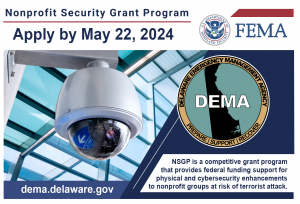
Apply Now for Nonprofit Security Grant Program
Date Posted: April 26, 2024
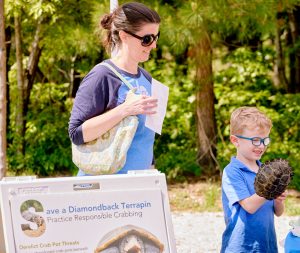
DNREC, Center for Inland Bays to Partner on ‘Water Family Fest’ and Native Plant Sale Saturday, May 4
Date Posted: April 26, 2024

Charter School of Wilmington Wins 2024 Delaware Envirothon Championship
Date Posted: April 25, 2024

DSHA Celebrates $125 Million In Funding To Help Delawareans Achieve Homeownership
Date Posted: April 25, 2024
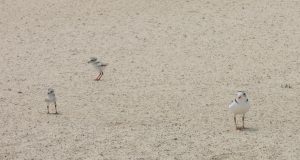
DNREC to Offer Training for Volunteer Monitors of Delaware’s Beach-Nesting Birds
Date Posted: April 25, 2024

Delaware Tutoring Efforts Recognized by National Learning Collaborative
Date Posted: April 25, 2024
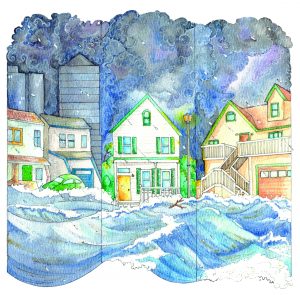
DNREC Launches Online Flood Planning Tool
Date Posted: April 24, 2024
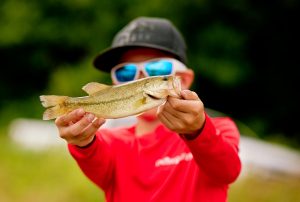
Kids Invited to Cast a Line at Youth Fishing Tournament
Date Posted: April 23, 2024
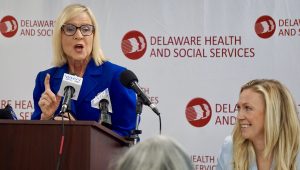
Delaware Officials Provide Latest Updates, Underscore Urgency Regarding Substance Use Disorder Outcomes in Delaware
Date Posted: April 22, 2024

DSB Partners with SBDC to Support Small Business Loan Program
Date Posted: April 22, 2024
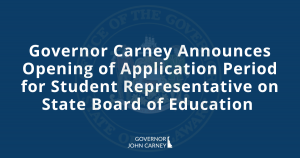
Governor Carney Announces Opening of Application Period for Student Representative on State Board of Education
Date Posted: April 22, 2024
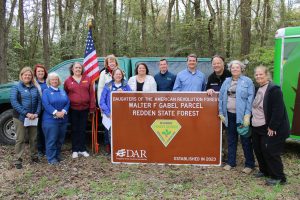
Delaware Forest Service Joins Daughters of the American Revolution to Establish Memorial Forest in Sussex County
Date Posted: April 22, 2024

Delaware Division of the Arts and The Biggs Museum of American Art Open Award Winners XXIV Exhibition
Date Posted: April 22, 2024

Delaware State Housing Authority Welcomes Emily Cunningham As Chief Of Staff
Date Posted: April 22, 2024

DPH Hosts Family Assistance Center Emergency Response Full-Scale Exercise
Date Posted: April 19, 2024

Attorney General Kathy Jennings supports new rules targeting money laundering
Date Posted: April 19, 2024

Delaware Division of the Arts Announces 13th Annual State Employee Art Exhibition Winners
Date Posted: April 19, 2024

NASCAR Driver Ross Chastain Partners with the Delaware Office of Highway Safety for 2024 Events
Date Posted: April 18, 2024

Three Schools Earn Delaware Purple Star Recognition
Date Posted: April 18, 2024

Wilmington’s Cab Calloway School of the Arts Crowned Junior Solar Sprint Champion
Date Posted: April 18, 2024

State Honors Top High School Seniors as 2024 Secretary of Education Scholars
Date Posted: April 18, 2024
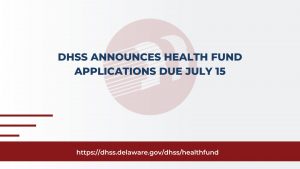
DHSS Announces Health Fund Applications Due July 15
Date Posted: April 17, 2024
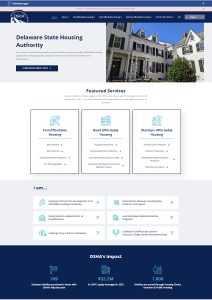
Delaware State Housing Authority Announces The Launch Of Its New And Improved Website
Date Posted: April 17, 2024
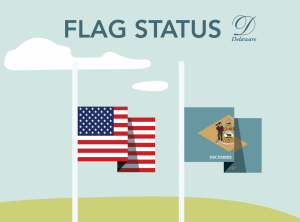
Governor Carney Orders Lowering of Flags
Date Posted: April 16, 2024

Delaware State Fire Commission Welcomes Mental Health and Wellness Administrator.
Date Posted: April 16, 2024

DelDOT Highlights National Work Zone Safety Awareness Week “Become a hero toward zero, their lives depend on it.”
Date Posted: April 16, 2024

The Delaware Office of Highway Safety Increases Enforcement for National Distracted Driving Awareness Month
Date Posted: April 15, 2024

Suspended Trooper faces prison after pleading guilty to six charges, including two felonies
Date Posted: April 12, 2024

Lt. Governor, School Districts, Philanthropist Launch Monetary Awards Program for Black Students
Date Posted: April 11, 2024

Attorney General Jennings obtains victory for manufactured housing residents
Date Posted: April 11, 2024
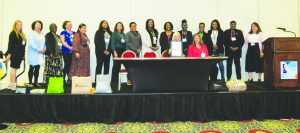
Delaware Cancer Consortium Hosts 2024 Biennial Retreat
Date Posted: April 10, 2024

$100,000 Grant Announced To Support Eviction Prevention Services In Delaware
Date Posted: April 9, 2024

Final NorthPak defendant convicted of two murders, more than 50 felonies
Date Posted: April 8, 2024
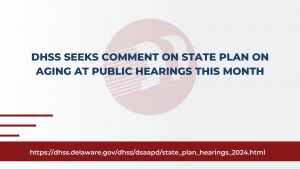
DHSS Seeks Comment on State Plan on Aging at Public Hearings This Month
Date Posted: April 5, 2024
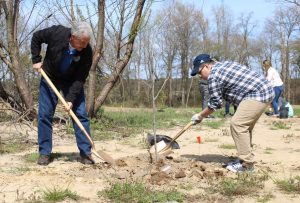
Delaware Advances Toward 1 Million Tree Planting Goal
Date Posted: April 5, 2024

Treasurer Davis Encourages Delawareans to Prioritize Saving
Date Posted: April 5, 2024
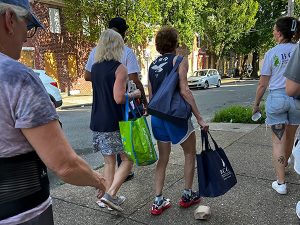
Delaware Overdose Deaths Decrease for the First Time in Decade
Date Posted: April 4, 2024

State Offers Support for Students Applying for Financial Aid
Date Posted: April 4, 2024
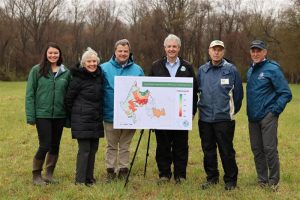
Governor Carney, Secretary Garvin Celebrate Expansion of White Clay Creek State Park
Date Posted: April 3, 2024
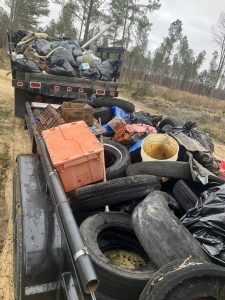
State Agencies Join Forces Against Illegal Trash Dumping
Date Posted: April 2, 2024
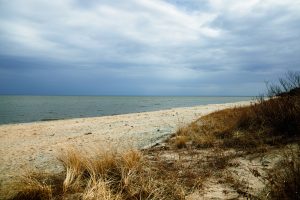
DNREC to Offer Earth Day Beach Cleanup, Kids Crafts
Date Posted: April 2, 2024

Future Health Care Workers Win State Awards
Date Posted: April 2, 2024

The Mezzanine Gallery to exhibit “Within the Intimate Realm” by E. Schwinn
Date Posted: April 1, 2024

31-year DOC veteran named Warden of Howard R. Young Correctional Institution
Date Posted: March 28, 2024
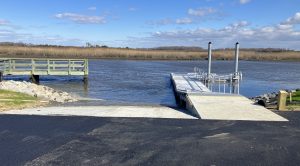
Scotton Landing Boat Ramp Reopens for Spring
Date Posted: March 27, 2024

Delaware Teachers Named Finalists for National Mathematics, Science Teaching Award
Date Posted: March 27, 2024

Walk Down Memory Lane at Delaware Public Archives
Date Posted: March 27, 2024
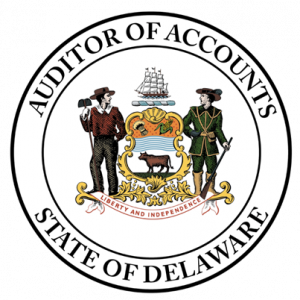
DE Auditor Issues Special Report on Unemployment Insurance
Date Posted: March 26, 2024
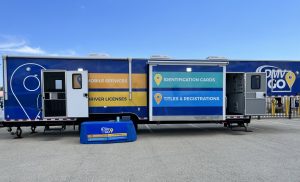
DMV on the Go Gears Up for 2024 Season
Date Posted: March 26, 2024

Two Students to Represent Delaware at National Science Camp
Date Posted: March 26, 2024
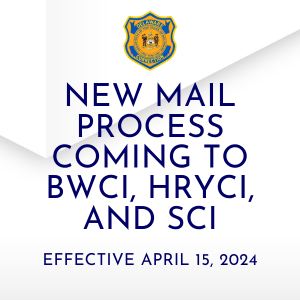
Department of Correction Expands Enhanced Mail Screening System To All State Prison Facilities
Date Posted: March 26, 2024
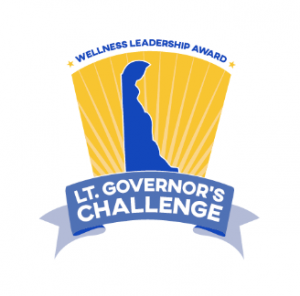
2024 Lt. Governor’s Challenge Seeks Applicants for Wellness Leader Awards
Date Posted: March 25, 2024

51st Annual DETSA Conference Celebrates Young Leaders, STEM and Innovation
Date Posted: March 25, 2024
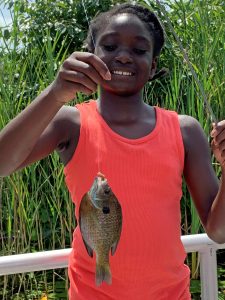
DNREC Announces ‘Take a Kid Fishing!’ Spring Events
Date Posted: March 22, 2024

Bill Introduced to Protect Entities Serving the Legal Marijuana Industry
Date Posted: March 21, 2024
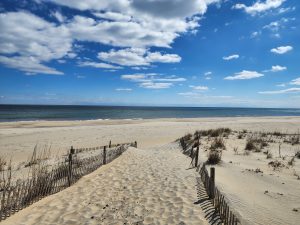
DNREC to Host Virtual Meeting on Deauville Beach Management Transition and New Entrance Fee Proposal
Date Posted: March 21, 2024
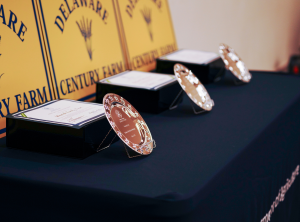
Delaware Inducts Three Farm Families into Century Farm Program
Date Posted: March 21, 2024

DPH Observes World Tuberculosis (TB) Day on March 24
Date Posted: March 21, 2024
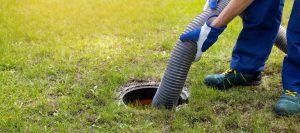
DNREC, Kent Conservation District Offer Chesapeake Bay Implementation Grant Funding for Septic Tank Pump-outs
Date Posted: March 21, 2024
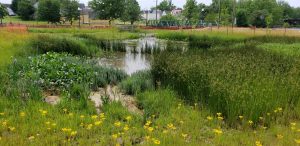
DNREC to Seek Community Water Project Proposals
Date Posted: March 20, 2024

Selbyville Fire
Date Posted: March 19, 2024
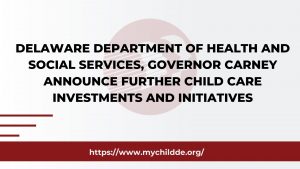
Delaware Department of Health and Social Services, Gov. Carney Announce Further Child Care Investments and Initiatives
Date Posted: March 19, 2024

Middle and High School Students Invited to Compete in Digital Mapping Technology Contest
Date Posted: March 19, 2024

Emergency Sirens Test on April 2 and Potassium Iodide Event on April 4 in Middletown
Date Posted: March 19, 2024

Governor Carney Seeks Applications for Governor’s Summer Fellowship Program
Date Posted: March 19, 2024
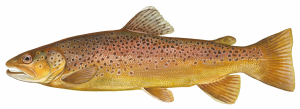
Delaware to Open Upstate Trout Season With Youth-Only Fishing Day Set for April 6
Date Posted: March 19, 2024
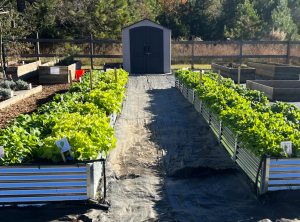
First State Food System Program Opens Third Grant Application Cycle
Date Posted: March 18, 2024

Cynthia Karnai Confirmed As Director Of Delaware State Housing Authority
Date Posted: March 18, 2024
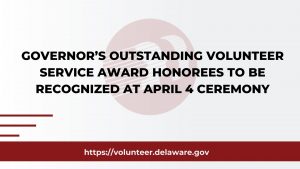
Governor’s Outstanding Volunteer Service Award Honorees to Be Recognized at April 4 Ceremony
Date Posted: March 18, 2024
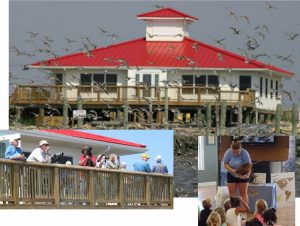
DNREC’s DuPont Nature Center to Reopen April 3
Date Posted: March 18, 2024

Georgetown Fire
Date Posted: March 17, 2024

AG Jennings’ statement on Senate passage of Senate Bill 2
Date Posted: March 14, 2024

Lt. Gov. Hall-Long Applauds Passage of Senate Bill 2(S) Gun Safety Legislation
Date Posted: March 14, 2024
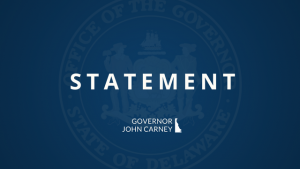
Governor Carney’s Statement on the Passage of Senate Substitute 1 for Senate Bill 2
Date Posted: March 14, 2024
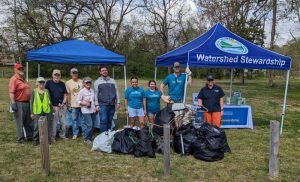
Volunteers Sought to Join Concord Pond Cleanup April 13
Date Posted: March 14, 2024

Prosecutors secure conviction against Jordan Ellerbe’s murderer
Date Posted: March 14, 2024

Governor Carney’s Statement on Senate Confirmation of Cynthia Karnai as Director of State Housing Authority
Date Posted: March 13, 2024

State of Delaware Seeking Third Consecutive Year of Record Hiring: Job Fair for Students and Skilled Workers
Date Posted: March 13, 2024
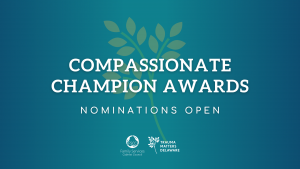
Nominations Open for State of Delaware Compassionate Champion Awards
Date Posted: March 13, 2024

DOJ secures over seven life sentences, habitual offender status for Keith Gibson after violent killing spree
Date Posted: March 13, 2024
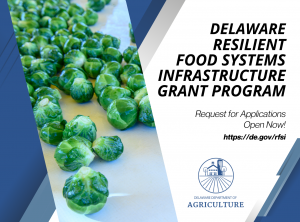
Delaware Department of Agriculture Opens Request for Applications for Resilient Food Systems Infrastructure Program
Date Posted: March 12, 2024

With gun safety in Court, Delaware, New Jersey, Pennsylvania AGs stand for common sense
Date Posted: March 11, 2024
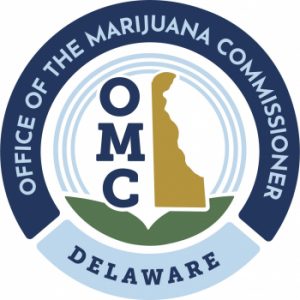
The Office of the Marijuana Commissioner released additional sections of the informal draft regulations for review.
Date Posted: March 11, 2024

Lt. Governor, Partners Raise Awareness of Infant Formula Distribution Program
Date Posted: March 11, 2024
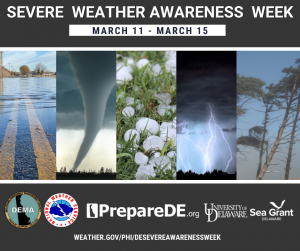
Severe Weather Awareness Week March 11-15, 2024
Date Posted: March 9, 2024

DPH Reports High Levels of Lead in Certain Cinnamon Products
Date Posted: March 8, 2024
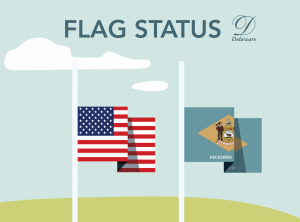
Governor Carney Orders Lowering of Flags
Date Posted: March 8, 2024

Maiss Hussein to Represent Delaware in 2024 Poetry Out Loud National Finals
Date Posted: March 7, 2024
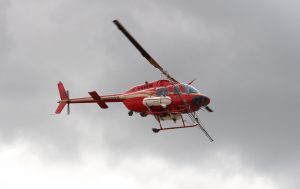
DNREC’s Mosquito Control Section Set to Spray Woodland Pools
Date Posted: March 7, 2024

Governor Carney’s Statement on Senate Confirmations
Date Posted: March 6, 2024
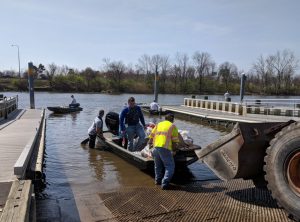
Get Involved in Earth Month: Register Now for the April 13 Christina River Watershed Cleanup
Date Posted: March 6, 2024

Governor Carney Delivers 2024 State of the State Address
Date Posted: March 6, 2024

Change Your Clocks, Check Your Batteries
Date Posted: March 6, 2024

Parks Plans Wind Transmission Line Informational Event
Date Posted: March 4, 2024

Celebrating Delaware’s Trailblazers: Women’s Hall of Fame Art Exhibition in Partnership with the University of Delaware
Date Posted: March 1, 2024
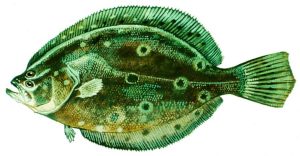
DNREC Announces Changes to 2024 Summer Flounder and Scup Recreational Fishing Regs
Date Posted: March 1, 2024

Mary and Charles Vinson sentenced to over 150 years in serial child abuse case
Date Posted: February 29, 2024

The Office of the Marijuana Commissioner (OMC) has released additional sections of the informal draft regulations.
Date Posted: February 29, 2024

Delaware Division of the Arts Encourages Arts Philanthropy Through Do More 24 Delaware
Date Posted: February 29, 2024

























































































